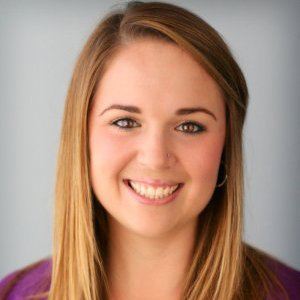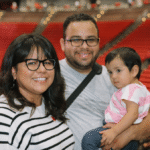 Valerie Sarni graduated from U.C. Davis in 2007 and had a mid-level career as a technology project manager. “Long story short,” she says, “I realized that I wasn’t happy sitting at a desk all day long, and that my true passion pointed me toward the medical field.” After investigating a variety of medical professions, she thought the perfect fit was as physician assistant. “Once I decided on becoming a PA, I knew I needed to find a way to log plenty of direct patient-care hours in order to be competitive, so I chose medical assisting as the path to get me there,” said Sarni.
Valerie Sarni graduated from U.C. Davis in 2007 and had a mid-level career as a technology project manager. “Long story short,” she says, “I realized that I wasn’t happy sitting at a desk all day long, and that my true passion pointed me toward the medical field.” After investigating a variety of medical professions, she thought the perfect fit was as physician assistant. “Once I decided on becoming a PA, I knew I needed to find a way to log plenty of direct patient-care hours in order to be competitive, so I chose medical assisting as the path to get me there,” said Sarni.
She entered the Clinical Medical Assistant Certificate program at SDSU’s College of Extended Studies, completed it in seven months, and now works at Emory Healthcare in Atlanta, learning from some of the top surgeons in Georgia.
“Without the certification, I would’ve been looked over,” said Sarni. “With the certification, I was able to land a job as a CCMA [Certified Clinical Medical Assistant] in the General Surgery department at one of the largest healthcare systems in the Southeast.”
We trace her journey.
How did you find out about SDSU’s Clinical Medical Assistant program?
Honestly, I Googled it. I knew that I couldn’t afford to take the course through a for-profit university, and the program at the local community college took up to two years to complete. The SDSU extension course was the fastest, most affordable way I could get my certification and had the flexible evening hours that allowed me to work while going through the program.
How did the program meet your expectations?
The pace at which the material was covered was moderate, which made it possible to juggle my competing demands while still succeeding in class. The amount of in-class lab time we got was significant, and the experienced instructor made sure to cover anything that we’d be exposed to while on the job.
What do you think are the program’s biggest strengths?
The evening hours made it possible for working professionals or full-time students to take the course without having to alter their hours. Also, it was the shortest program in the area, only requiring seven months from start to finish, so it was possible to get into the work world much more quickly than with competing programs.
Can you speak to the caliber of the instructors?
Cindy, the instructor, was incredibly knowledgeable. Her many years of on-the-job knowledge combined with her approachable demeanor fostered a relaxed, mature, learning environment. Her supervision style allowed us all to practice our newly learned skills on each other in a safe manner.
How long did it take to complete the program?
Six months to complete the classroom portion and take the CCMA test, and another month (or longer depending on what externship you were matched with). For me, it was seven months in total.
Who was your externship employer and how was that experience?
I externed at Partner’s Urgent Care in Clairemont. The team there was very friendly and eager to help me succeed. They were also very forgiving of a few beginner mistakes I made, and provided me with a comfortable environment in which to practice my newly learned skills.
How did you land your job at Emory Healthcare in Atlanta?
Shortly after I finished my externship, my husband accepted a new job position in Atlanta, Georgia. While I had essentially no experience other than what I’d learned in those seven months, I felt being certified gave me a leg up on the competition. Emory Healthcare, like many other large healthcare systems, had moved toward requiring all MAs to be certified prior to being hired. Without the certification, I would’ve been looked over. With the certification, I was able to land a job as a CCMA in the General Surgery department at one of the largest healthcare systems in the Southeast. Now, I’m logging 40 hours a week of direct patient-care contact hours learning from some of the top surgeons in Georgia.
What’s the next step in your career?
I’ve applied to a handful of physician assistant programs that I was able to meet the minimum requirements of, thanks to my year’s worth of direct patient-care hours (I’ve already logged closed to 2000 hours). Physician assistant programs are incredibly competitive so the more hours I can add to my resumé, the better my chances are to stand out from the crowd. The CCMA certificate opened that door to allow me to start logging those hours. Now, especially that I’m certified AND have a year’s worth of experience, I’ve gotten multiple recruiter emails interested in hiring me for open positions. It’s great to see such quick results in a career change.
Would you recommend the Clinical Medical Assistant Certificate Program to others?
Yes. It’s a great way to jump start your career as a medical assistant!
Anything else you’d like to add?
If you’re going down the medical assistant path, be sure to get your BLS [Basic Life Support] card as well. Many of the careers you’ll seek after require that you be CPR-certified for healthcare providers. Southwest College offers a very cheap, one-day training in beautiful Coronado. I highly recommend using them!




